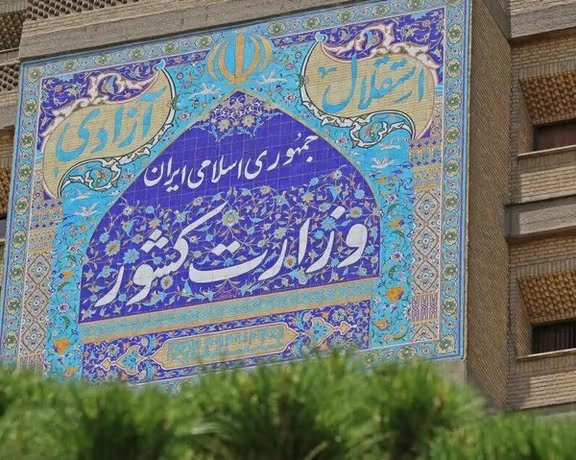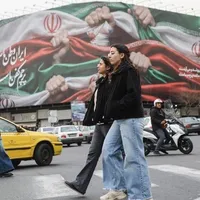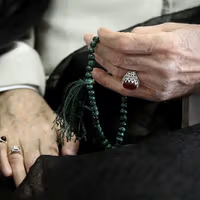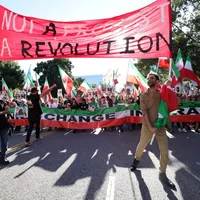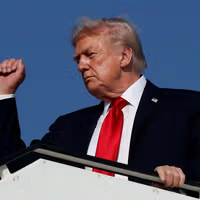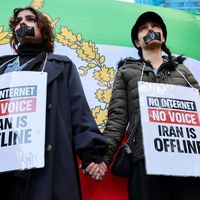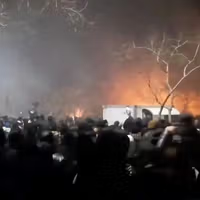It was a rare moment of honesty — and a metaphor for a deeper failure in Western journalism. For decades, many correspondents have mistaken access for understanding and permission for credibility.
This reporting perpetuates the illusion that a “moderate” or “reformist” faction within the clerical regime is always on the brink of pursuing a more friendly policy toward the West — if only Washington and its partners would be more conciliatory.
At the same time, this coverage conceals the essential truth that a younger, connected, and defiantly secular generation rejects religious dictatorship.
To report from Iran, Western journalists must operate under state supervision. Their “fixers” are often regime-approved minders who decide which families they can meet, which streets they can visit, and what stories they can tell. The price of defiance is expulsion. Most choose to stay, and so they comply.
The result is journalism that reports through the regime’s lens. Coverage mirrors Tehran’s narrative while ignoring its contradictions.
When Iran invited Western media to cover the recent 12-day war with Israel, many major outlets accepted. Yet none mentioned the most visible fact on Tehran’s streets: women walking unveiled in courageous defiance of the law and regime threats.
Instead, their dispatches focused narrowly on civilian casualties, using regime-selected witnesses and identical talking points. Access was preserved; truth was not.
Since 1979, Western coverage has lagged a decade behind Iran’s reality.
In the early years of the revolution, reporters portrayed a nation united behind Ayatollah Khomeini, ignoring the liberals, nationalists, and religious dissenters who opposed him.
Two decades later, President Mohammad Khatami was cast as proof that “reformers” were emerging inside the system. In fact, his 1997 victory was a bottom-up protest vote, not a top-down project of change.
Ever since, journalists have recycled the same script: “moderates” versus “hardliners.” They still describe every election as a “battle for Iran’s future,” though every candidate operates within red lines drawn by Supreme Leader Ali Khamenei.
The 2015 nuclear deal was touted as the triumph of moderation under President Hassan Rouhani — yet it was conceived and authorized by Khamenei himself.
While foreign correspondents chase factional drama, Iran’s people have transformed. A younger, connected, and defiantly secular generation has rejected clerical control.
The revolt of Iranian women — from the “Woman, Life, Freedom” uprising of 2022–23 to daily acts of unveiled defiance — represents the most sustained challenge to the Islamic Republic since its founding.
But these stories are rarely told. At their height, protests command the attention of Western journalists. When they abate, often because of bloody suppression, it is back to the old story about alleged “moderates.”
When Western correspondents appear on air from Tehran wearing the compulsory hijab, they explain it as “respect for local culture.” But there is nothing cultural about coercion. Millions of Iranian women are risking imprisonment to defy that law, while foreign journalists are complicit in its perpetuation.
There are exceptions. VICE News correspondent Isobel Yeung chose honesty over access in her 2023 documentary on post-Mahsa Amini Iran. She’s unlikely to receive another visa. Meanwhile, the same media that rail against limits on press briefings in Washington submit meekly to the censorship of a theocracy.
This is more than a journalistic sin; it’s a strategic failure. Policymakers rely on the press to gauge Iran’s internal dynamics. When the media misread the country, so do the governments that read them.
Washington and Europe have spent years betting on “moderates” who don’t exist, negotiating with powerless presidents, and failing to see the possibility that the Islamic Republic will collapse from within.
Ultimately, those who pay the price are Iranians themselves.
Jon Snow’s line — “They whistle, and we go” — should be engraved above every newsroom desk that covers Iran. It captures the moral inversion of access journalism: the more the regime whistles, the faster the press runs.
Iran today is not the country Western reporters still describe. It is a nation where millions quietly rebel, where women lead a moral revolution, and where a dictatorship survives because it guns down dissenters while outsiders echoing the Islamic Republic’s preferred narrative.
The choice for Western journalists is clear: keep obeying the whistle — or finally listen to the voices on the street.






